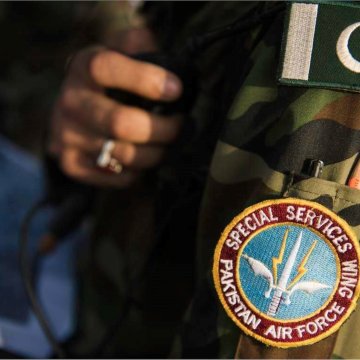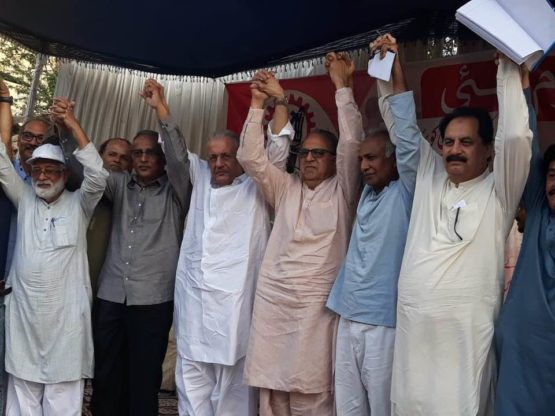- About
- Topics
- Picks
- Audio
- Story
- In-Depth
- Opinion
- News
- Donate
- Signup for our newsletterOur Editors' Best Picks.Send
Read, Debate: Engage.
| topic: | Transparency and Corruption |
|---|---|
| located: | Pakistan |
| editor: | Shadi Khan Saif |
On the brink of a dreadful economic meltdown, Pakistan is set to adopt even tougher austerity measures as it seeks to secure a bailout package from the International Monetary Fund (IMF).
The country’s currency, the rupee, has plunged to a record-low - 16.5 percent in value against the US dollar in just a few weeks. Latest figures suggest the central bank reserves in the country stand at $3.09 billion - the lowest in more than two decades.
This has resulted in sky-high inflation, making prices of staple goods and commodities unaffordable for most people, therefore increasing poverty and disparity in the country. Pakistan loses around 40 percent of its budget just to pay its debt and loans, meaning that the country’s debt-servicing is expected to reach $23 billion.
Of course, this has not happened overnight.
A toxic cocktail of poor economic and monetary policy combined with corrupt politics and bad governance over years has brought this country of over 200 million people on the verge of a total default.
There is, however, a more sinister reason hardly mentioned and addressed.
Throughout Pakistan’s history, military spending has taken a huge chunk of the annual budget, leaving very little for social services like education and healthcare, which has undermined social development. Currently, amid the persistent economic cris, the military spending consists of around 19 percent of the total budget ($11.3 billion) while employing less than 2 percent of the labour force in the country.
Besides this massive burden on the economy, the militarised dominance of the state has caused an array of sociopolitical troubles, not just for Pakistan but the Southeast Asia region as a whole. As the army has become more powerful and wealthy, some say it owns the country, not the other way around.
So far, the main focus of the austerity measures have been fuel-price hikes and cuts in education, health and housing spending, therefore affecting the poor and marginalised groups of society.
Though these quick-fixes might buy time for the economic planners in Pakistan, the core problem of uneven distribution of resources and lack of productivity will continue to affect the country for the foreseeable future. The country’s defence minister has publicly acknowledged that the military and political elite of Pakistan are mostly immune to the economic crisis.
This leaves only one institution to push for financial accountability from the elite: the IMF.
Image by Sameer Akhtari

